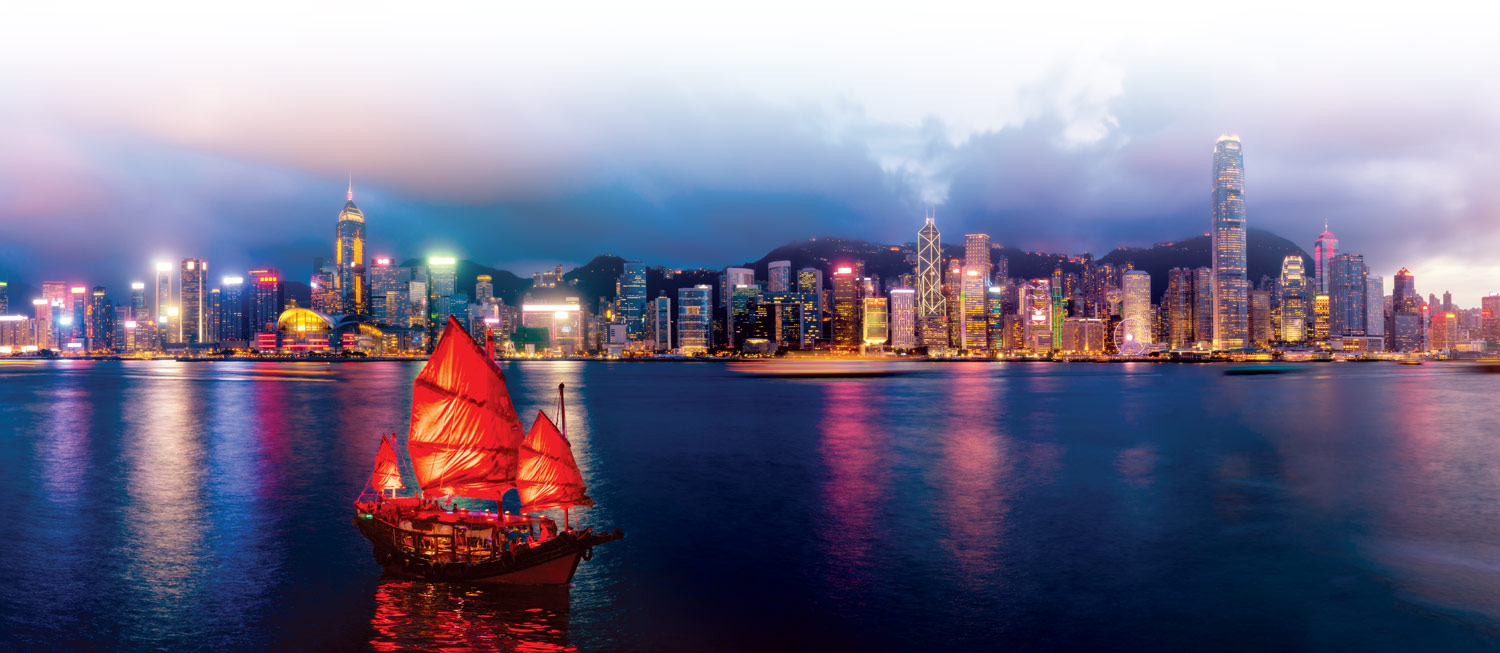was sitting at Peet’s Coffee sipping a café latte in Shanghai with China legend Bob Theleen when he leaned in and said, “Never bet against Hong Kong!”
The Fragrant Harbor is no joke. On a hot summer day, if you stand by Hong Kong’s famed waterfront, you cannot see or smell any traces of the origin of the name. It’s said to be a reference to the spice ships that once sat in the harbor trading incense. Still, one cannot help but marvel at the skyline rising up from the water’s edge. It has more skyscrapers than any city in the world and is a wonder of human ingenuity and capitalism.
First, a bit of history. At the end of the Opium war, the Qing Dynasty ceded Hong Kong Island to Britain in 1842. Later, the British acquired Kowloon and the surrounding New Territories with a 99-year lease. Since then Hong Kong has been the entrepôt between Asia and the world. Its industrial history is rooted in labor-intensive sectors like textiles, electronics and plastics. As China opened up, Hong Kong became the portal to the world’s largest market and was a bastion of financial, legal and operational headquarters for all the foreign companies hungry for a piece of the China pie.
Today, Hong Kong is one of the world’s most important trading cities and financial centers. Its success is remarkable by any standard. Citizens enjoy one of the longest life expectancies despite its frenetic pace. Although a mostly stable place, Hong Kong has endured the riots of the ‘60s, the Black Friday currency crisis in the ‘80s, Soros’ attack in the late ‘90s, and the SARS epidemic in the early 2000s. But nothing compares to Hong Kong’s current crisis, which is a combination of several calamities: The U.S.-China trade wars, the protests and the pandemic all fell upon this amazing city at the same time.
Many around the world are wondering about Hong Kong’s future. With recent protests followed by Beijing’s increasing influence in the city and the rise of neighboring Shenzhen, some are wondering just how important Hong Kong is to the region. But never bet against Hong Kong and its people. They are a unique combination of East and West and appreciate the value of hard work. They are steely-eyed capitalists and have a laser focus on getting things done. They are resilient, nimble and operate at a feverish pitch. This work ethic, combined with friendly immigration policies, higher education, low taxes and laissez faire government, as well as a central geographic location, have all contributed to their success. It should be no surprise that Hong Kong is one of the world’s richest places, with more billionaires per capita than nearly anywhere in the world.

These survival instincts are the characteristics needed most in today’s tumultuous business environment. Whether you are the leader of an organization or an individual contributor, never before has teamwork been more relevant. As we face uncertainty in our businesses, we must try to flatten the hierarchical organization chart, practice inclusion and stay focused on innovation. The people of Hong Kong have faced uncertainty before and developed a sharp focus on survival where inclusion and innovation are required. Hong Kongers concentrate on what matters most and, due to their frenetic pace, iterate and move on very quickly. They are no strangers to the “fail fast” approach to business.
Intel’s Andy Grove said that, during a crisis, bad companies die, good ones survive and great ones thrive. I saw this firsthand when my former boss, Mike Rielly, was facing the pandemic and went into survival mode. He shifted to essentialism, focusing only on things that mattered. In addition, he changed the way the organization communicated and shared ideas. Inclusion became more than just a flavor-of-the-month business term. It became a crucial part of our business recovery efforts. He instigated all-hands meetings designed to ensure input from everyone. Moreover, he embarked on a campaign of “over-communicating” all the issues facing the organization, both good and bad. This strategy proved to be just what we needed in a time of anxiety and uncertainty.
I have no doubt that Hong Kong, a city full of daring entrepreneurs, will find a way to punch through the current challenges. Hong Kongers are tireless. They have always overcome. That’s why I am optimistic about the future of this city and the entire Greater Bay Area. Hong Kong’s way of doing business has never been about who you are but about what you can do. They will listen to everyone and everything that can help them succeed. They will not stop iterating until they find the best path forward. And they are racing into the future at a sprinter’s pace.
This is something we can all learn from, especially in a time of crisis. When the world opens back up to travel, come visit and experience firsthand the energy, attitude and grit required to build and capitalize on the future.

wechat: DWMNov2008
email: danamagenau@gmail.com
wechat: DWMNov2008
email: danamagenau@gmail.com